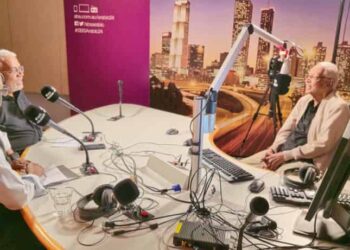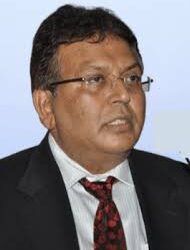Background
To formulate the National Educational Policy, Government of India released certain topics for public views in January 2015. The topics released created an impression that the policy initiatives are likely to change the basic policy on education. Many letters dispatched from Tamil Nadu to the Ministry with the appeal that education should not be the proposition of the commercial product and education sector should not be based on mono cultural perspective.
In the meantime the Ministry stated that 2.75 lakh meetings were conducted throughout the country to ascertain the public opinion besides the receipt of views from about 29,000 persons through e mode. It was announced that a committee was formed to compile all the feedback. The committee comprised of four retired Indian Administration Service personnel and the one connected to managerial education. The former Union Cabinet Secretary Mr.T.S.R.Subramanian was the chairperson of the committee. It seems that the committee has furnished the report to the HRD Ministry.
Instead of releasing the entire content of the report to seek public opinion, the Ministry made public under the heading, “Some Inputs for Draft National Policy on Education 2016”. Public views were invited for which the last date fixed was 31st July 2016. Recently the date was extended to 16th August 2016. The contents of the input could not be understood clearly without the aid of the full text of the report. The full text of the report is available in e-form which was not formally released. Besides, all the releases made by the Ministry are only in English. If the full views of the public about the inputs have to be mobilised for the formulation of effective, participative education policy, the inputs should have to be translated in all the regional languages and then released. The effective, meaningful feedback and views from the public will comeforth. Otherwise the ‘inputs’ released would be restricted only to the ‘English’ knowing public.
With this constrained background, the probable outcome and direction of the proposed National Policy on Education 2016 may be analysed.
Primary Education
At present no-detention policy is being observed upto upper primary level (upto VIII Std) which will be limited to lower primary (V Std) in future, stating that the present policy affects seriously the academic performance of students. Besides, Right to Education Act will be amended for the formation of ‘Alternate Schools’. Alternate schools offer educational interventions for specific categories of very deprived and migratory children and those living in difficult circumstances.
Only for about the past one century, the major section of the people have started going school, who were divided, discriminated and denied education historically. By the formation of ‘Alternate School’ the students will again be discriminated and it will remain as a great hurdle for equal opportunities to all. The core message of the policy initiative is denial of equality in educational opportunities.
Secondary and Higher Secondary Education
The policy input explores the proposal of conducting ‘Academic Aptitude Tests’ at various stages of secondary education under the premise of identifying the true potential students and their areas of interest, helping them in right choice of courses including skill-based programmes and guide them for relevant employment opportunities.
Such sort of aptitude tests for secondary and higher secondary education level will limit their progress in future back to their limited social and educational background of the parents and families. There will be likely chance of students restricting their academic study within the secondary or higher secondary education, and likely to opt for the practice of the respective family profession through the brand of skill – based programmes. ‘Kula KalviThittam’ which was introduced by Rajagopalachari, the then Chief Minister of Madras State (presently Tamil Nadu) in 1953 and subsequently withdrawn after his resignation due to the timely protests mobilised by Periyar E.V.R. will be replayed country wide with the said proposal input of segregation of students as per choice and skill. It will lead to the students to fall in line with their father’s profession, the deleterious effect is, birth based discrimination viz., Varnashrama Dharma. In the name of progressive education, a vividly retrograde measure is proposed meticulously in the formulation of the education policy.
Curriculum Renewal and Examination Reforms
“For Science, Mathematics and English subjects a common national curriculum will be designed. For other subjects such as social sciences, a part of curricula will be common across the country and the rest will be at the discretion of the States.
Class X examinations in Mathematics, Science and English will be at two levels, Part A at a higher level and Part B at a lower level. Students who intend to join courses/programmes for which Science, Mathematics or English is a not prerequisite or wish to shift to vocational stream after class X will be able to opt for Part – B level examination”.
The above said policy initiative is blatant discrimination of students in the name of segregation by option at secondary school level itself and make the higher education, less competitive to the socially upper caste people who have been enjoying privileges in all spheres.
Inclusive Education and Student Support
“With the objective of encouraging merit and promoting equality, a National Fellowship Fund, primarily designed to support the tuition fees, learning materials and living expenses for about 10 lakh students will be created. The scholarships from this fund will be made available to students belonging to the economically weaker sections.”
Any promotional measure meant for weaker sections must be based on social and educational backwardness as per the provisions of Indian Constitution. On the contrary, promotion of the economically weaker would definitely favour the upper caste people. When inclusive education remains as challenge to the socially and educationally weaker, and the proposed inclusive education is with ulterior motive of keeping uneducated as such making the space wider for denial of education to them. In fact the policy initiative is not constitutionally binding.
The preamble of the draft says, “the Constitution (86th Amendments) Act 2002, that inserted Article 21-A, in the Constitution of India envisages free and compulsory education for all children in the age group of six to fourteen years as Fundamental Right in such manner as the State may by law determine. The Right of children to Free and Compulsory Education (RTE) Act 2004 which represents the consequential legislation envisaged under Article 21A of the India Constitution entitles every child of the age of six to fourteen year with the right to free and compulsory education in a neighbourhood school till completion of the elementary education”.
When compulsory education is emphasized for children of six to fourteen year i.e. up to upper primary education, how denial of such education can be allowed in the name of skill development leading to discontinuation of education to look after automatically the family related business activities.
When the spirit behind educational provisions in Indian Constitution is free and compulsory education, the shrinking of financial support and responsibility by the State in the draft is not in tune with the welfare of the citizens. There is no provision for State investment in higher and specialised education when the draft speaks about the development of quality education. Instead, MNCs will be liberally allowed in higher education sector. When there is no full-fledged reservation in education for the oppressed section so far, what is the position of it in case MNCs came into the higher education scenario?
The entire policy initiatives covered in the draft is not in the equitable interest and welfare of the major sections of the population. However the discriminative and segregating feature is spread at all levels. The interference of Central Government in education is possible since 1976. Duringemergency, the education was shifted from ‘State List’ to ‘Concurrent List’ of the Constitution without any means of democratic debate and deliberations.
The awareness about the probableill effects in the draft inputs which are basic for the formulation of New Education Policy 2016 is not there even among the educated. The entire policy initiatives have to be stopped and a new expert committee has to be formed with the composition of educational experts representing various social sections of the society. Practically a genuine educational policy has to be formulated, taking into consideration, the further journey to be pursued by the people who were denied education fully as well as insufficiently. The probable effects of the draft policy initiatives released by the Government of India must be exposed to the public through the meetings, conferences, contacts and through social media. Democratically elected Government must come forward to address the genuine concern to impart education to all in an equitable manner.
FUTURES AND PROBABLE ILL EFFECTS OF POLICY INITIATIVES- NEP 2016
* The change in defining age limit for childhood is proposed. This will direct the children to be attentive to their family in their respective enterprise/ business or other skill oriented activities. The proposed enhancement of the upper age limit will prevent the chance of penalising the employer, deploying child labour.
* Proposal of the introduction of the idea of ‘one India, one Language and one Culture’, prioritises Sanskrit as the one and sole language for the cultural integrity of the country. This is nothing but aggressive ideology of RSS. This sort of proposal will belittle the other languages included in the VIII schedule of Indian Constitution and depriving the citizens in the various States, with their distinct cultural identities, insignificant.
* The policy initiatives deprive the education policy formulating rights of the States and make them simply to implement the policy, designed by the Central Government. It is against the federal structure of the country’s polity
* Segregating students from the mainstream education and making them earning daily wages through skill imparting.
* Making students even before they attain the age of 14 years to discontinue their academic study and branding them as not fit to pursue further.
* Opening the flood gates for MNCs in areas of higher education liberally and making their functioning immune to the higher judiciary. Separate tribunals will be formed to deal with the litigations related to the education from MNC institutions.
* The provisions for the discontinuation of co-education system under the premise of keeping up the so called saffronised cultured identity.
* Favouring the education offering provisions of WTO (World Trade Organisation) which will not be rewarding to the indigenous students.







